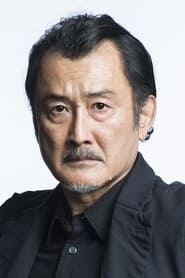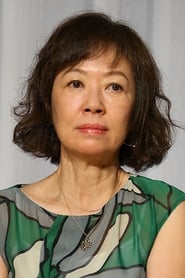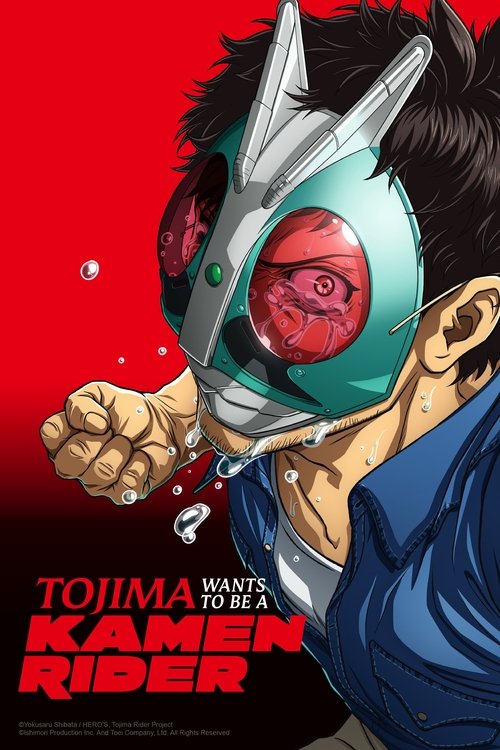
Ask Your Own Question
What is the plot?
Nobu travels to the naval hospital to visit Jiro, who remains hospitalized due to his worsening lung disease. The hospital is understaffed and supplies are scarce, reflecting the ongoing food shortages affecting the region. Nobu brings what little food she has managed to gather, but Jiro is too weak to eat much and his condition visibly distresses her.
While at the hospital, Nobu overhears nurses discussing the lack of medicine and the increasing number of patients with respiratory illnesses. She learns that the hospital is struggling to keep up with demand and that some patients are being discharged without proper treatment due to overcrowding. Nobu feels helpless but resolves to do what she can to help Jiro.
Nobu returns home and speaks with her family about Jiro's condition. They express concern but also frustration over their own struggles with food and resources. Nobu insists on continuing to visit Jiro, despite the risks and the strain on their limited supplies. Her determination is met with mixed reactions, but she remains steadfast.
Nobu begins to ration her family's food even further, secretly setting aside portions to bring to Jiro during her visits. She grows thinner and more exhausted, but refuses to give up. Her younger siblings notice her fatigue and worry about her health, but Nobu brushes off their concerns.
During one visit, Nobu finds Jiro in severe pain and struggling to breathe. She calls for a nurse, but the staff is overwhelmed and cannot provide immediate assistance. Nobu stays by Jiro's side, holding his hand and offering words of encouragement. Jiro weakly thanks her for not giving up on him.
Nobu decides to seek help from a local doctor who had previously treated her family. She walks a long distance to reach his clinic, arriving exhausted. The doctor listens to her plea and agrees to visit Jiro at the hospital, but warns that he has little medicine to offer. Nobu thanks him and returns to the hospital with renewed hope.
The doctor arrives at the hospital and examines Jiro. He administers what little medicine he has and advises Nobu to keep Jiro warm and hydrated. He also suggests that Jiro needs better nutrition, but acknowledges that this is nearly impossible under current conditions. Nobu promises to do her best.
Nobu continues her visits, bringing whatever food she can find and staying by Jiro's side. Over time, Jiro's condition slowly improves, though he remains weak. Nobu's persistence and care begin to have a positive effect, and the hospital staff starts to notice her dedication.
Jiro eventually regains enough strength to speak more clearly and express his gratitude to Nobu. He tells her that her visits have given him the will to keep fighting. Nobu smiles, relieved that her efforts have made a difference.
The episode ends with Nobu leaving the hospital, looking back at Jiro's window. She walks home, tired but hopeful, knowing that she has done everything she could for her friend.
Related Titles
Browse All Titles →
What is the ending?
Episode 61 Ending Summary
In Episode 61 of Anpan, five months have passed since the end of the war. The episode concludes with a critical telegram arriving that informs viewers that Nobu's husband, Jiro, is in critical condition. Additionally, Setsuko visits Nobu and reveals that Jiro had been writing in stenography, suggesting hidden depths to his wartime activities and character that are only now being uncovered.
Expanded Narrative Account
The episode opens with the setting established as five months into the postwar period. The nation is undergoing significant transformation under the guidance of GHQ, the occupying American military authority. National schools are beginning to shift away from the militaristic ideology that had dominated Japanese education during the war years. This institutional change mirrors the personal transformations that the characters themselves have undergone.
Nobu, who had been deeply influenced by militaristic ideology before experiencing the horrors of war, now finds herself navigating this new postwar landscape. Her values have been completely altered by what she witnessed during the conflict. She and her husband Takashi have been pursuing what they call "a justice that never overturns," suggesting they are seeking moral principles that will remain constant and reliable in this uncertain new world.
As the episode progresses toward its conclusion, the narrative takes a dramatic turn. A telegram arrives bearing urgent news. The message informs that Jiro, Nobu's husband, is in critical condition. This sudden development introduces a crisis element into the story, shifting the focus from the broader societal changes to an immediate personal emergency affecting Nobu directly.
Following this shocking telegram, Setsuko arrives at Nobu's home to visit her. During this visit, Setsuko shares a significant revelation: Jiro had been writing in stenography. This disclosure suggests that Jiro possessed hidden knowledge or was engaged in activities during the war that were not immediately apparent. The stenography indicates he may have been recording information in a coded or abbreviated form, hinting at complexity in his wartime role and raising questions about what he knew and what he was documenting during those years.
The episode ends with these revelations hanging unresolved, leaving Nobu facing both the immediate crisis of Jiro's critical health condition and the deeper mystery of what his stenographic writings contain and what they might reveal about his past actions and knowledge during the war.
Is there a post-credit scene?
There is no postcredit scene in Anpan, Season 1, Episode 61. The episode concludes with its main narrative, focusing on Nobu and Takashi's emotional journey and the pivotal developments in their lives during the Showa era. The credits roll after the final scene, with no additional footage or scenes following the credits.
What significant event happens to Ayumu Nakajima in Episode 61 of Anpan Season 1?
In Episode 61, Ayumu Nakajima undergoes a notable transformation, which is a key plot point highlighted in the episode.
How does Nobu's visit to Jiro at the naval hospital in Episode 61 affect the storyline?
Nobu visits Jiro, who is suffering from a worsening lung disease, at the naval hospital, which underscores the ongoing struggles with health and food shortages in the post-war setting, adding emotional depth and tension to the story.
What is Meiko Asada's major development in Episode 61?
Meiko Asada achieves her dream of making her stage debut in Episode 61, a milestone that excites viewers and marks a significant personal achievement for her character.
How is the post-war environment depicted in Episode 61 regarding education?
Episode 61 shows that five months after the war, under GHQ guidance, national schools are beginning to shift their educational policies, reflecting the societal changes and reforms occurring in the story's setting.
What are the emotional states and motivations of Nobu Asada in Episode 61?
Nobu Asada is portrayed as deeply affected by the war's aftermath, motivated by a changed value system and a pursuit of justice that does not overturn, which drives her actions including her care for Jiro and support for her sister Meiko's ambitions.
Is this family friendly?
The TV show Anpan (Season 1, Episode 61, 2025) is generally family friendly and designed to be accessible to younger audiences, as it is part of NHK's morning drama lineup which often targets family co-viewing and children. The series is inspired by the life of Takashi Yanase, creator of the beloved children's character Anpanman, and his wife, focusing on their struggles and creative journey.
Potentially objectionable or upsetting content for children or sensitive viewers is minimal but may include:
- Themes of loss and tragedy: The show touches on the creator's experiences with personal loss, including the death of a parent, which might be emotionally heavy for very young children or sensitive viewers.
- Darker or more mature topics: While these are presented in a simplified and gentle manner suitable for family viewing, some scenes may involve emotional struggles or hardships related to wartime and personal challenges.
- No graphic violence or explicit content: The show is a drama with a focus on emotional and historical storytelling rather than action or horror, so it avoids graphic or explicit scenes.
Overall, Anpan is crafted to be digestible for children and families, with narration and storytelling designed to help younger viewers understand the emotional context without being overwhelmed. There are no reports of scenes that would be inappropriate or shocking for children, but parents of very young or sensitive children might want to be aware of the emotional themes related to loss and hardship.


































